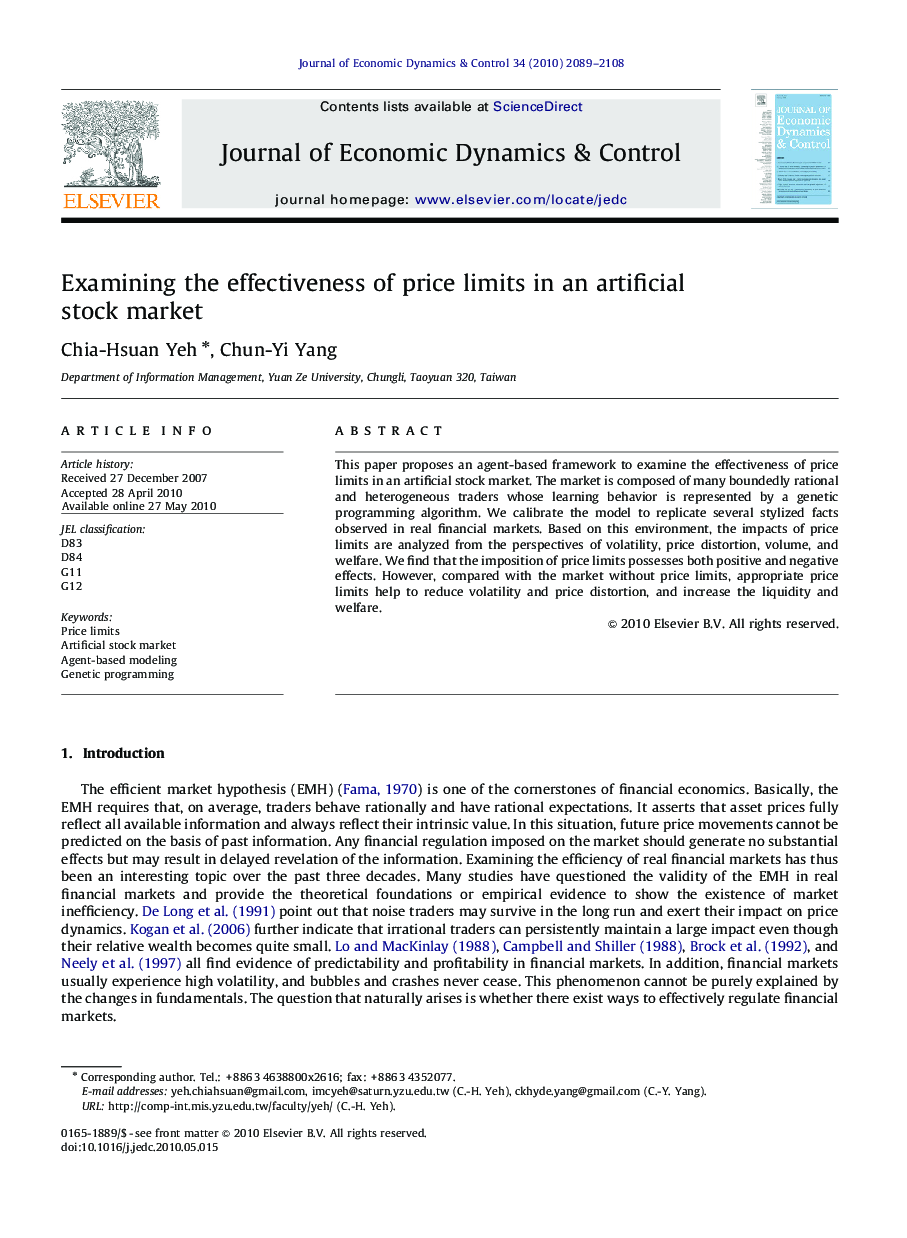| Article ID | Journal | Published Year | Pages | File Type |
|---|---|---|---|---|
| 5099674 | Journal of Economic Dynamics and Control | 2010 | 20 Pages |
Abstract
This paper proposes an agent-based framework to examine the effectiveness of price limits in an artificial stock market. The market is composed of many boundedly rational and heterogeneous traders whose learning behavior is represented by a genetic programming algorithm. We calibrate the model to replicate several stylized facts observed in real financial markets. Based on this environment, the impacts of price limits are analyzed from the perspectives of volatility, price distortion, volume, and welfare. We find that the imposition of price limits possesses both positive and negative effects. However, compared with the market without price limits, appropriate price limits help to reduce volatility and price distortion, and increase the liquidity and welfare.
Related Topics
Physical Sciences and Engineering
Mathematics
Control and Optimization
Authors
Chia-Hsuan Yeh, Chun-Yi Yang,
